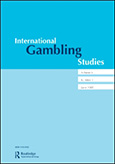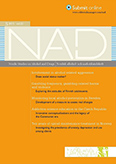This article is the final one in a series of three publications on problem gambling in the workplace (see Research page). The article focuses on the extent of economic harm caused by gambling-driven employee embezzlement. Abstract It is well-known that severe problem gambling may lead to economic crime. This study explored a particular type of …






